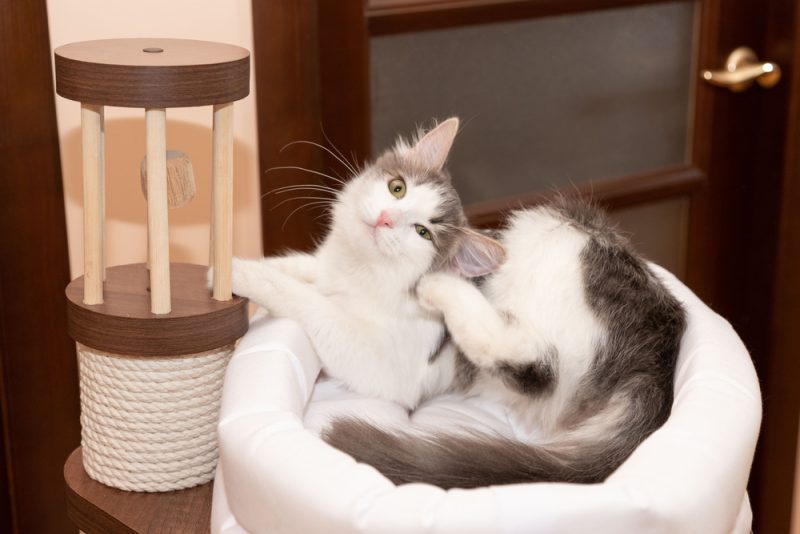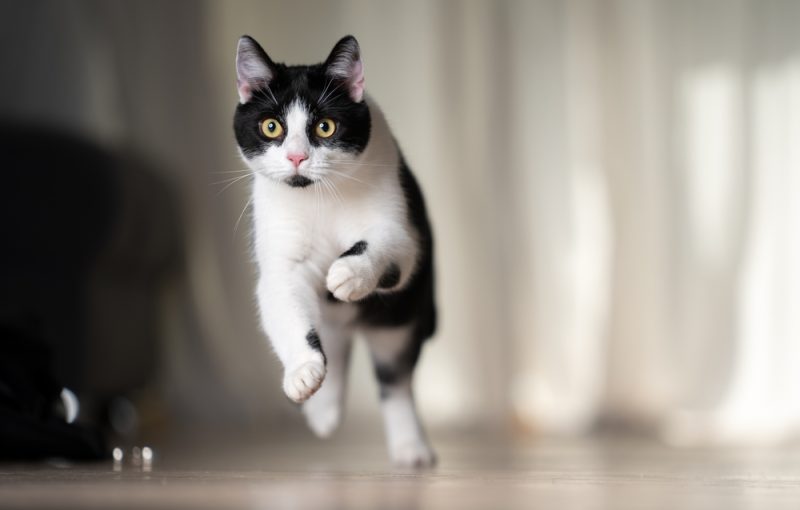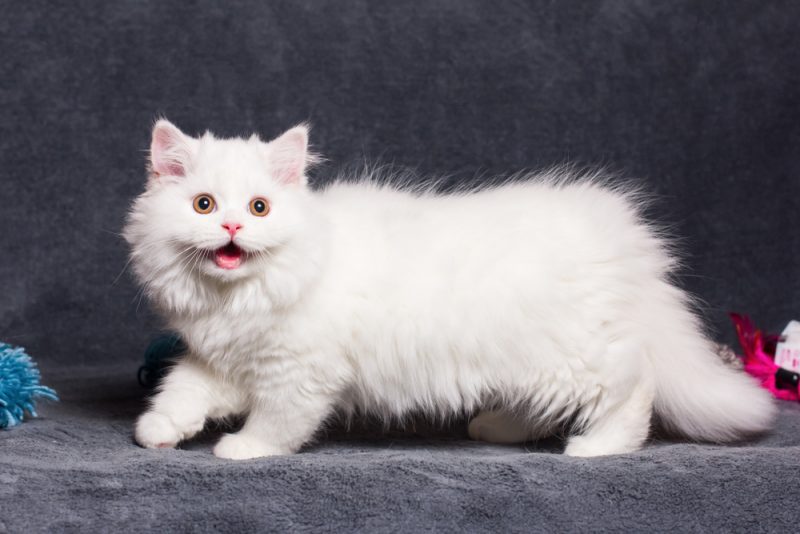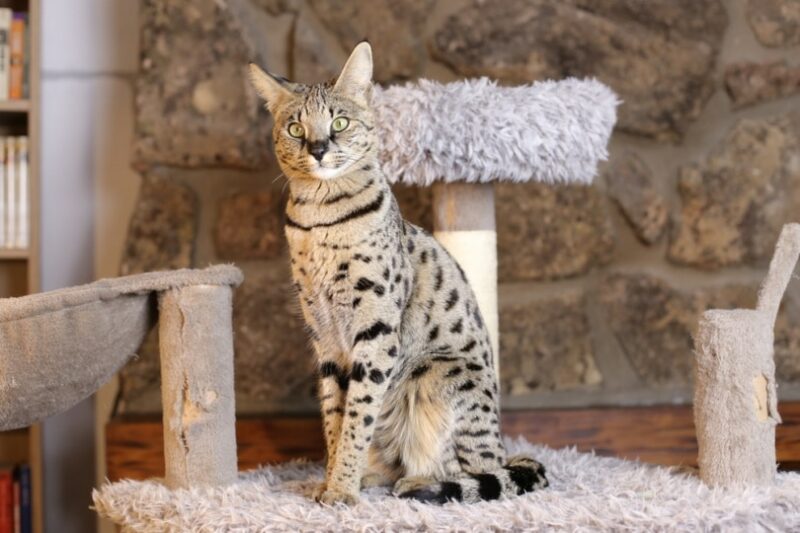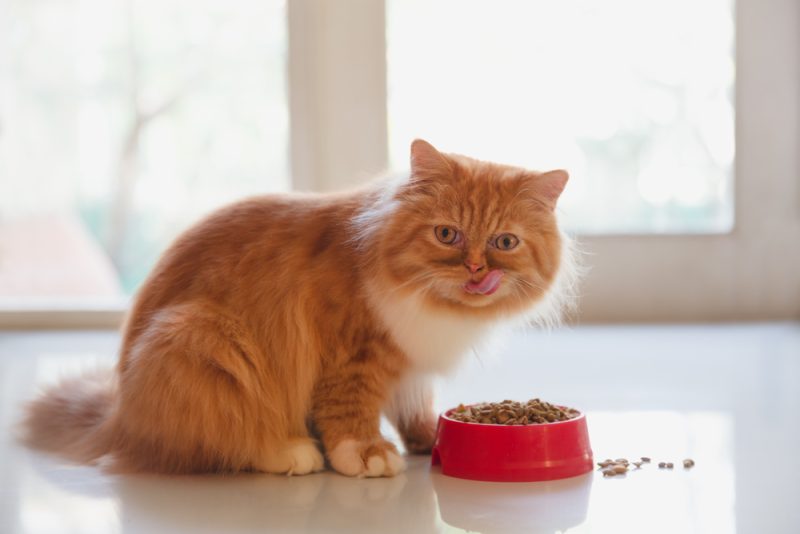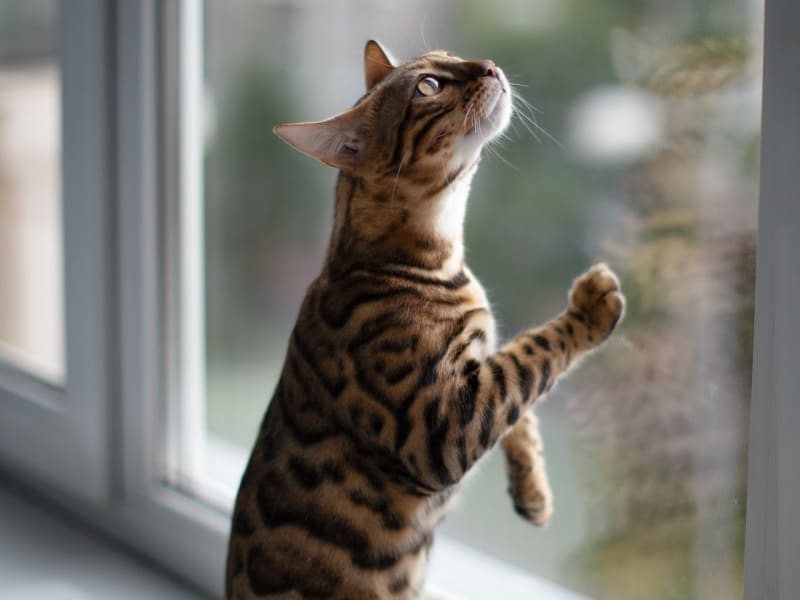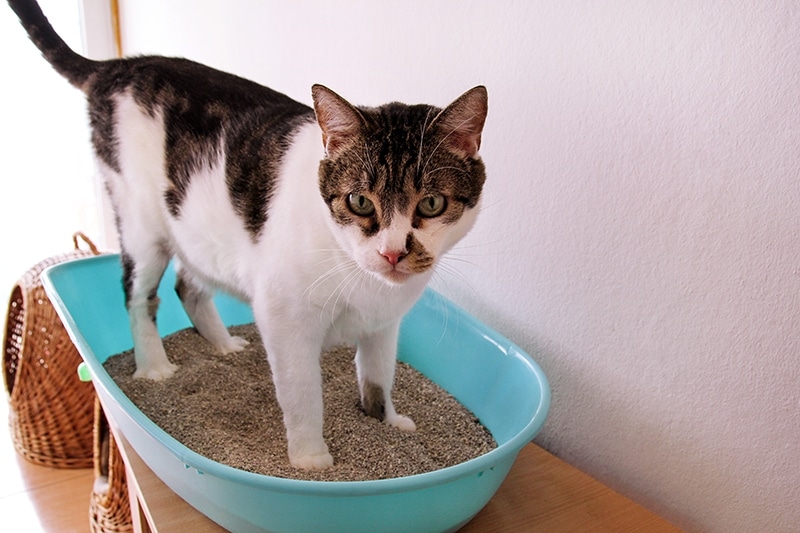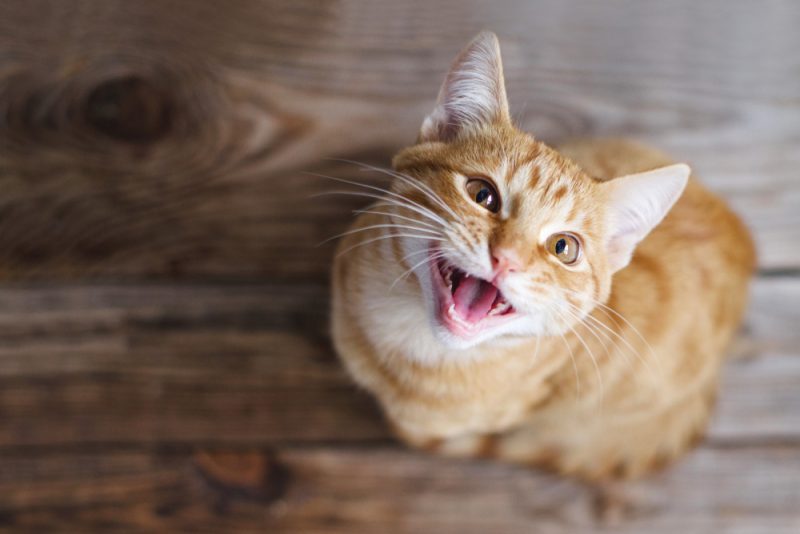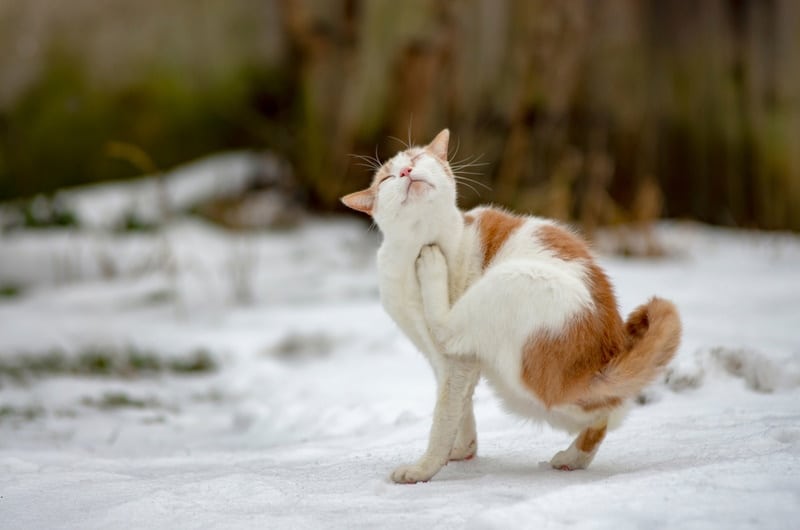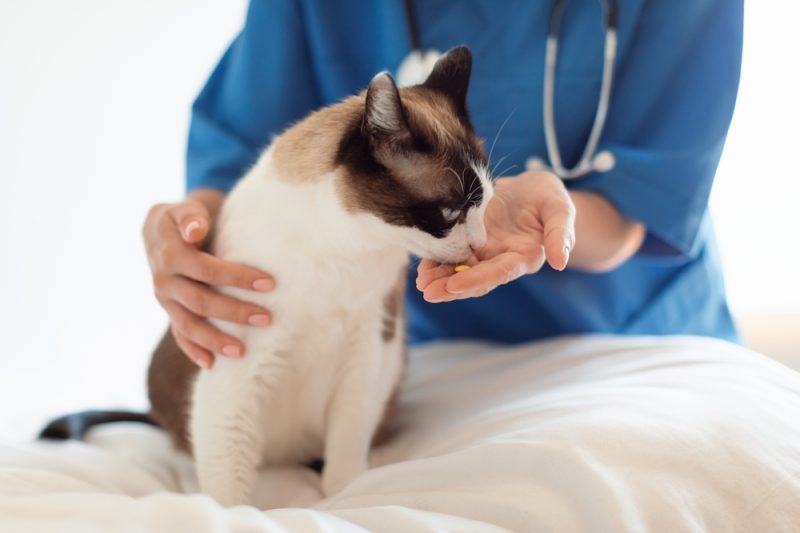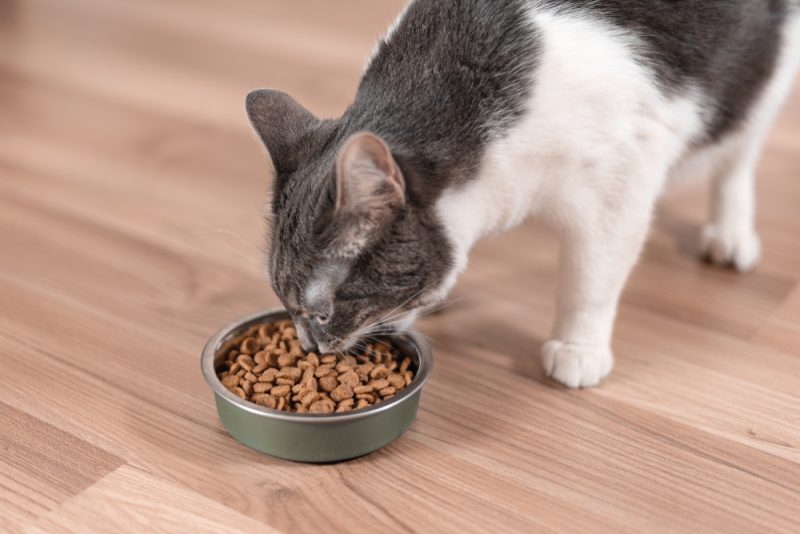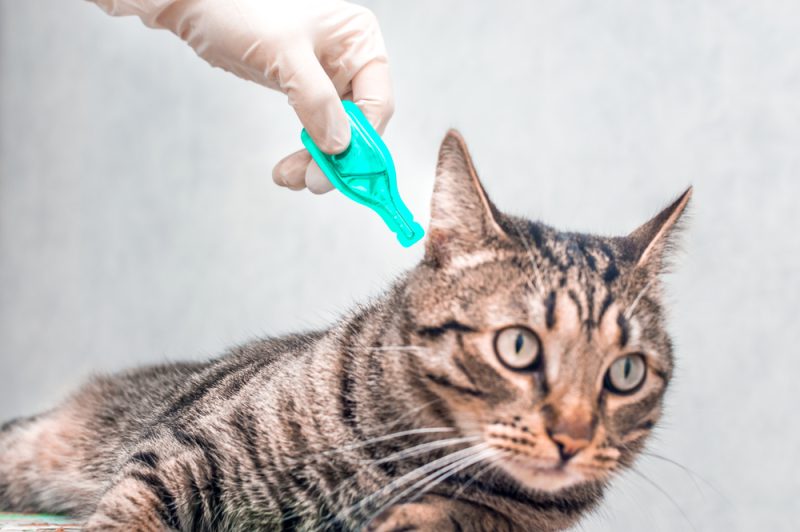Cats have many strange behaviors, like the peculiar chattering sound they make when seeing a bird or a laser pen. But when we see our cat twitching while awake, it’s natural to be concerned and look for the underlying reasons for this phenomenon. We’ve consulted the experts to gather as many explanations for this behavior as we could, and we are going to list them for you here. We’ll also teach you what to look for so you know when it’s time to take your pet to the vet.

The 11 Possible Reasons Your Cat Is Twitching
Involuntary muscle movements in cats are classified according to their causes. We will review some of the most common causes. However, just based on where the twitching occurs on the body, it will be difficult to pinpoint the exact underlying cause, without a veterinarian’s clinical exam of the skin as well as the whole body, sometimes combined with blood testing and other diagnostic methods.
1. Your Cat Is Dreaming
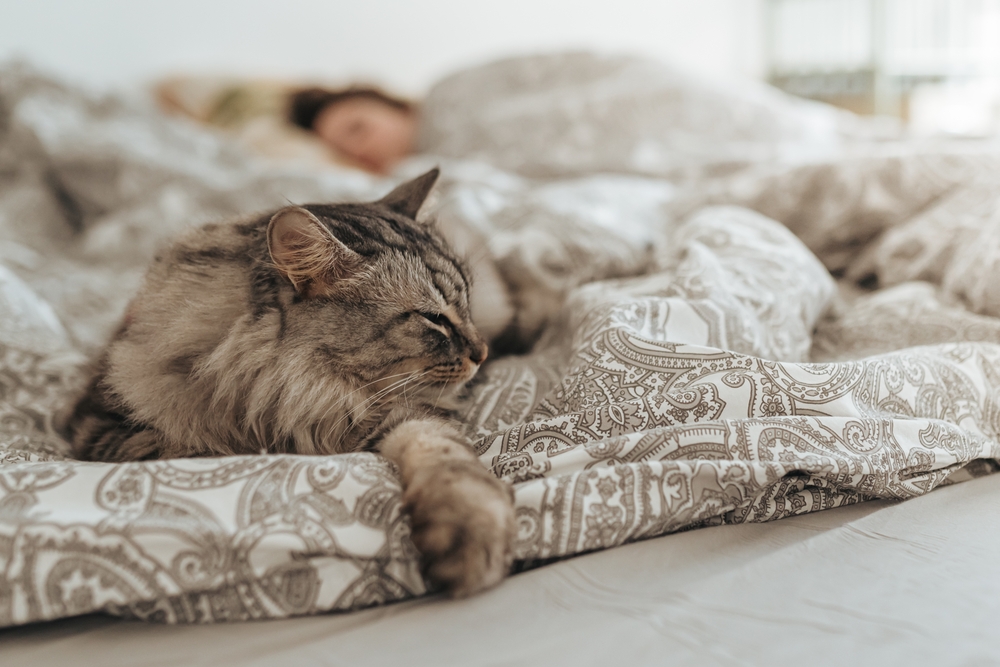
One of the most common reasons for cat twitching is sleeping and dreaming. Much like people, your cat can have dreams that cause them to act strangely when they’re asleep, so it wouldn’t be uncommon to see uncontrollable muscle movements or vocalizations.
No, there is nothing to be alarmed about if you see your cat twitching while they sleep.
2. Hyperesthesia
Hyperesthesia is a condition that causes the cat’s back to become extremely sensitive. It causes the cat to have sudden episodes where they may become quite vocal and start running around the house. You will also see a twitching of the skin on the back that resembles rolling. Your cat may even begin to scratch or lick the area intensely, resulting in hair loss or skin damage.
Though the condition can be annoying for your cat, it is not life-threatening, and you do not need to rush to the vet unless you begin to see hair loss or your cat is injuring themselves in other ways. However, this should be checked out by a vet so they can help get an early diagnosis and some advice to help combat it in the future.
If you need to speak with a vet but can't get to one, head over to PangoVet. It's an online service where you can talk to a vet online and get the advice you need for your pet — all at an affordable price!
3. Nutritional Deficiencies
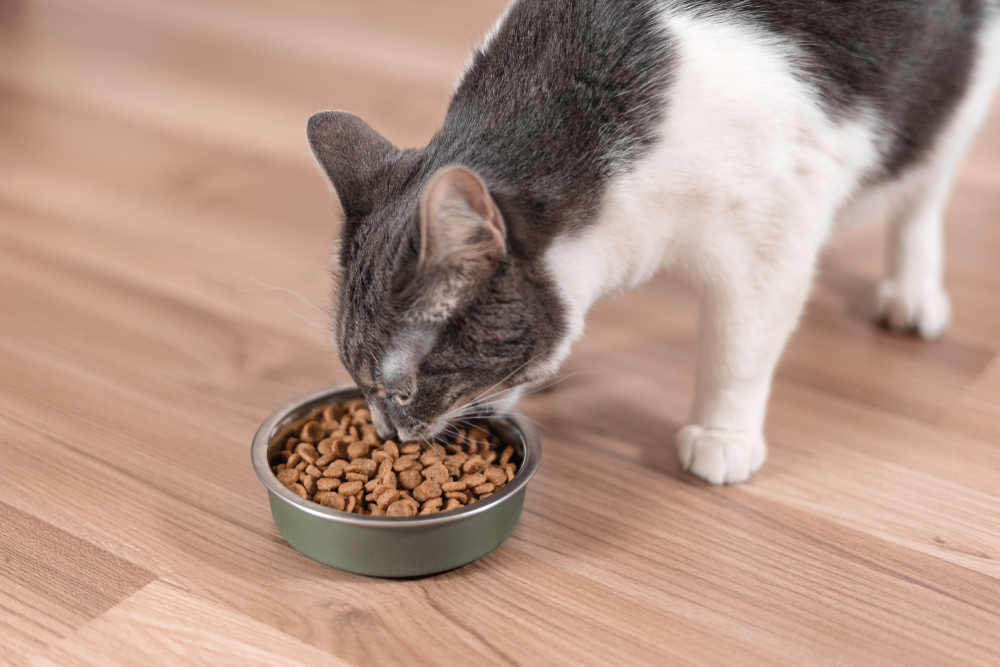
Several nutritional deficiencies can cause your cat’s twitching. Vitamins, particularly vitamin B1 or thiamine, are of great importance as cats require up to three times the amount of B1 than dogs.1 It is important to make sure this nutrient is present at an adequate level in your cat’s diet. Cats fed mostly on a raw fish diet need additional supplementation of B1 as the fish contains an enzyme called thiaminase that can break down the B1.
Minerals such as calcium play an important role in the fluid concentration of the cells and the regulation of muscle contraction. Cats with calcium deficiencies may have seizures. Feeding a good quality diet with adequate levels of calcium and a good multivitamin with minerals can help reduce any chances of nutritional deficiencies. However, hypocalcemia is usually secondary to other diseases, such as kidney disease or parathyroid disease.
Yes, if your cat is presenting with tremors or other signs of weakness or illness. Getting your cat, their bloodwork, and their diet checked by a veterinarian will help rule out any nutritional deficiencies or electrolyte imbalances due to the disease.
4. Low Blood Sugar
If your cat has low blood sugar or hypoglycemia, they can experience involuntary muscle twitching.
If your cat is diabetic, they received a higher dose of insulin than prescribed by mistake, or they are experiencing muscle twitches, poor appetite, drinking and urinating more often, please bring them to the veterinarian for a check and a blood test. Low blood sugar in a cat may be caused by other health conditions and will need investigations. A cat that is suffering from diabetes will need to follow a specialized diet and treatment to manage its condition, so you must take your cat to the vet.
5. Toxicity or Poisoning
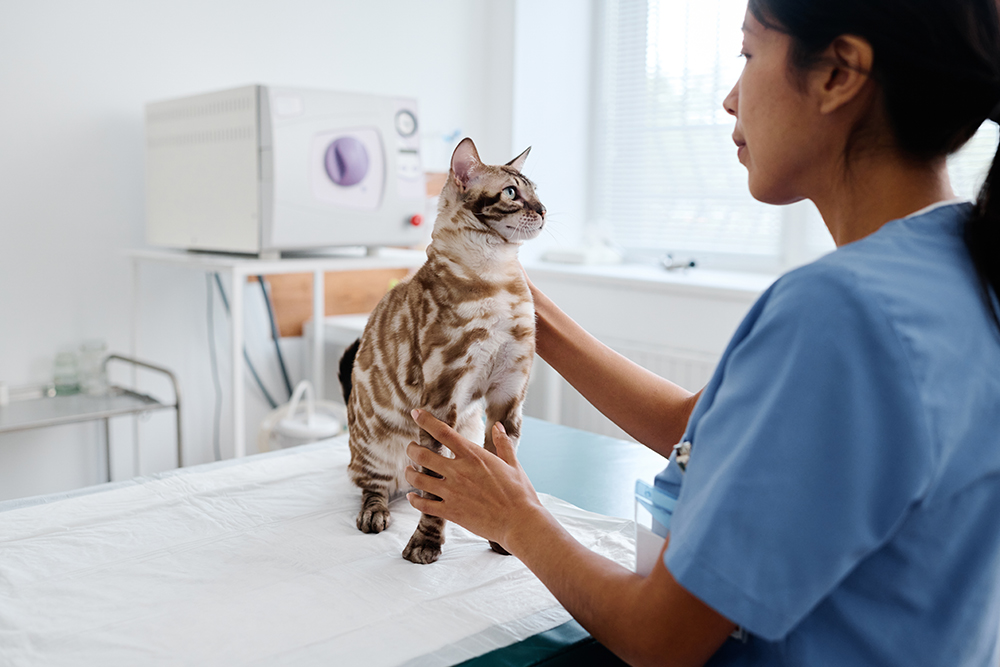
Your pet may have ingested something that is affecting their system and causing the muscles to twitch. Several toxins can lead to muscle twitches in cats, as can several medications that your cat may be taking.
Yes, if you suspect your cat has eaten something they shouldn’t have or developed a twitch after obtaining a new medication, you should see a vet immediately.
6. Nervous System Disorder
A nervous system disorder, like epilepsy or structural brain disease, is a common cause of involuntary muscle movement in cats. No one is sure what causes genuine epilepsy in cats, but many believe it to be genetic. Your cat may act strangely and seek attention or hide before an episode, and it can take your cat up to 24 hours to fully recover after a seizure. Seizures can be generalised, involving the whole body, causing a collapse, paddling with all four legs, twitching, chewing, urinating and defecating, or can be focal, leading to minor and very short random twitches, oftentimes on the face and around the ears.
Yes, while cats with epilepsy can live long and happy lives, early detection is critical to getting your cat the care they need while you get the required training to know what to do when a seizure occurs. Structural brain disease, such as a tumor, needs advanced MRI imaging and doesn’t carry a good outcome in most cases.
7. Kidney Failure
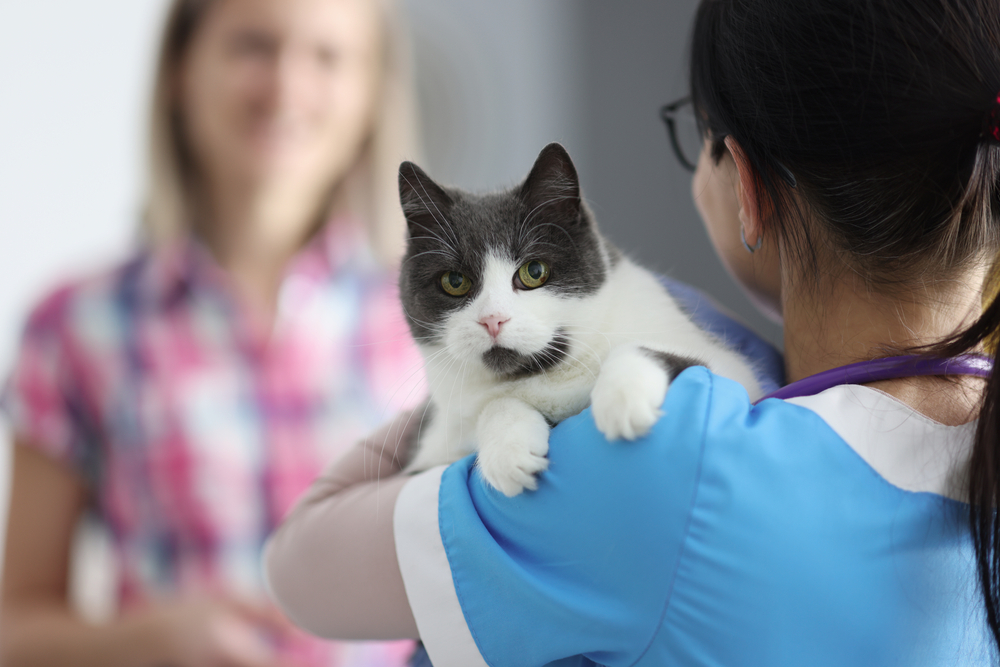
Kidney failure causes electrolyte imbalances, and your cat’s twitching can be a sign of that. Several factors can cause kidney failure, including bacterial infections, blockage of urinary flow due to urinary stones or masses, cancer, genetics, toxins, and more.
Yes, you should take your cat to the vet immediately if you think your cat is suffering from kidney failure, as loss of muscle control means the disease has progressed to a critical level, and your cat needs attention.
8. Rabies
Rabies is the most serious cause of muscle twitching on our list. It is a viral infection that is zoonotic, which means humans and any other mammal can contract it as well if bitten by an infected animal. Rabies attacks the nervous system and causes muscle twitches and extreme changes in behavior and aggression. Vaccinations are the best way to prevent it, and depending on state and country legislation and incidence of rabies in wild animals, cats and dogs will require vaccination against rabies.
If you suspect your cat has rabies, please isolate them in a room and report it to animal services. This virus causes extreme changes in the behavior of animals, and you are at risk of getting bitten and contracting the disease. It’s highly contagious and easy to spread to any other pets or yourself. Animal services staff have the training and equipment to handle animals with rabies in a safe way.
9. Injury and Trauma
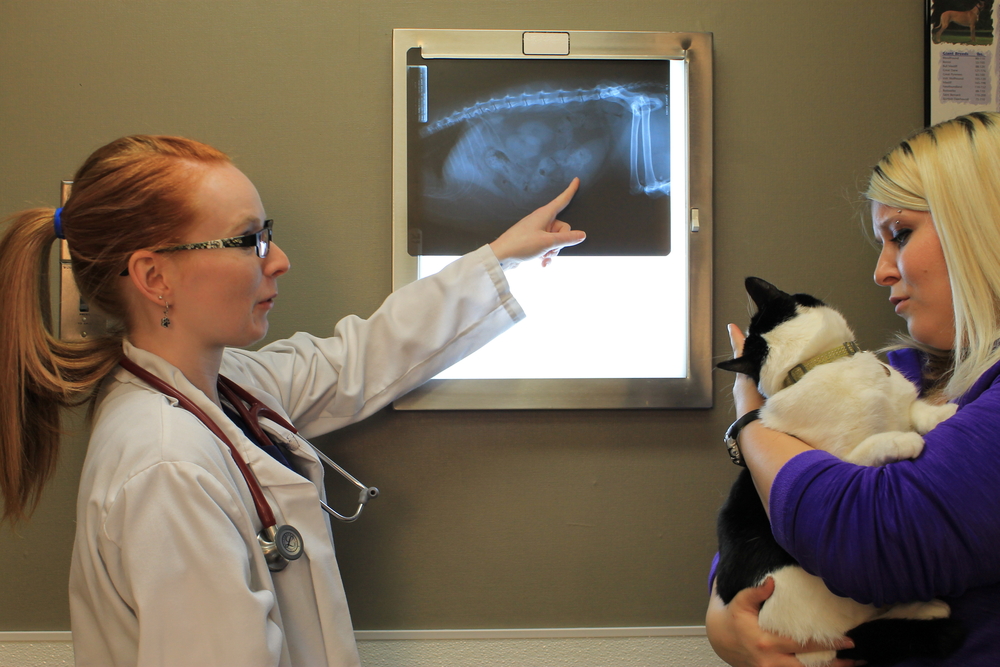
Injury and trauma are common causes of muscle twitching in cats. Any painful injury can cause twitching, and if there is a broken bone, you may also notice twitching.
If you notice your cat has suffered an injury and is presenting involuntary muscle movements, they could have a broken bone or an injury that needs immediate attention, so please take your cat to the vet.
10. Itchy Skin
Another common reason for twitching in a cat is itchy and irritated skin. The skin can get irritated when the cat has fleas or mites. The cat will continuously scratch, particularly their head and ears in case of ear mites, and their back end in case of fleas.
Occasional scratching throughout the day is normal for a cat, but if you see your cat routinely scratching the same spot (or multiple areas), you should take him or her to the vet for professional advice.
11. Fasciculation
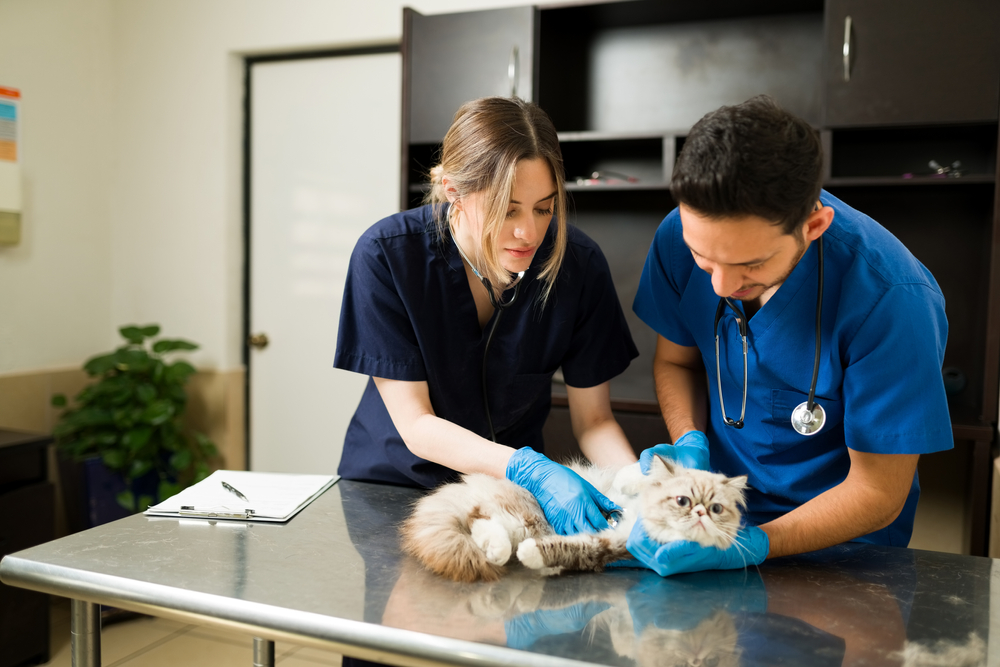
Fasciculation is the medical term for involuntary muscle spasms. It can occur rapidly and resemble a seizure, or it can be more subdued and better described as a twitch. It can be local to one part of the body or more general. Benign fasciculations can be caused by exercise or stress. However, toxic substances, neurological disorders, and metabolic disorders such as hypercalcemia can cause fasciculations.
It’s not necessarily essential to see your vet outside of normal working hours if you suspect your cat has fleas, but it is important to get the necessary medication from the vet as soon as possible. Fleas can cause a number of problems for your cat besides itchy skin, including anemia, so you will want to eliminate them quickly. If there are no fleas present, other health issues may be the cause for twitching, and they will require more urgent veterinary attention.

Summary
The most common cause of involuntary muscle twitching that we experienced after owning several cats was dreaming. Our cats will twitch their paws and move their eyes while sleeping, often accompanied by chatting noises. This action usually comes after an exciting day when the cat has seen a bird or squirrel in the yard. We’ve also seen a few cats with hyperesthesia. While it did not cause them to chew off their fur, we would see their skin twitch occasionally, and they would suddenly run around the house, making loud vocal noises.
We hope you have enjoyed reading and feel like you have found the cause of one of your cat’s strange behaviors. Speak to your vet if your cat is experiencing any twitching.
See also:
Featured Image Credit: fotovictoria, Shutterstock
